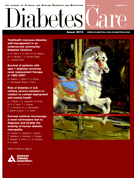.webp.92f3c0cefaf6f5840bab3823df28f18e.webp)
Celiac.com 08/14/2012 - One of the least talked about symptoms of celiac disease in children is a delaying of sexual maturation. Previous studies have established this effect, but they have not clearly explored whether treatment of celiac disease (via gluten-free diet) can restore sexual maturation to a normal rate. A study performed by the Indian Society of Gastroenterology suggests that treatment of the disease with life-long adherence to a gluten-free diet can prevent these symptoms from occurring.
 30 adolescents (21 females and 9 males between 10 and 19 years old) with diagnosed celiac disease and on gluten-free diet for at least one year were accepted into the study. Each patient's sexual maturity was evaluated using Tanner's stages of sexual development. Patients who were at least two standard deviations above the mean age appropriate for their sexual maturity level were considered to have delayed sexual maturation.
30 adolescents (21 females and 9 males between 10 and 19 years old) with diagnosed celiac disease and on gluten-free diet for at least one year were accepted into the study. Each patient's sexual maturity was evaluated using Tanner's stages of sexual development. Patients who were at least two standard deviations above the mean age appropriate for their sexual maturity level were considered to have delayed sexual maturation.
Celiac.com Sponsor (A12):
Participants and their parents provided the following information to be used in the study: family size, family income, educational status of parents, staple cereal used in family diet, age at diagnosis of celiac disease and age at start of gluten-free diet.
The age at onset of celiac disease symptoms ranged from 2 to 13.5 years, and the age at diagnosis ranged from 3 to 16 years (mean ages 4.6 and 7 years, respectively). At the time of the study, all children had completed at least 2 years on the gluten-free diet. 16 of the 30 patients had completed 4 years.
30% of patients in the study (9 out of 30, 1 boy and 8 girls) demonstrated delayed sexual maturation. The information gathered from families (family size, income, etc.) was charted against these results, and delayed sexual maturation was shown to be associated with later initiation of gluten-free diet.
These results tell us that a gluten-free diet could very well serve to prevent delayed sexual maturation symptoms from manifesting in children. The limits of the study (no age- and sex-matched control group as well as limited means of verifying diet compliance) as well as contradictory findings from Open Original Shared Link leave room for further investigation, but it would seem that we have yet another reason to diagnose and treat celiac children as early as possible.
Source:
- Open Original Shared Link









Recommended Comments